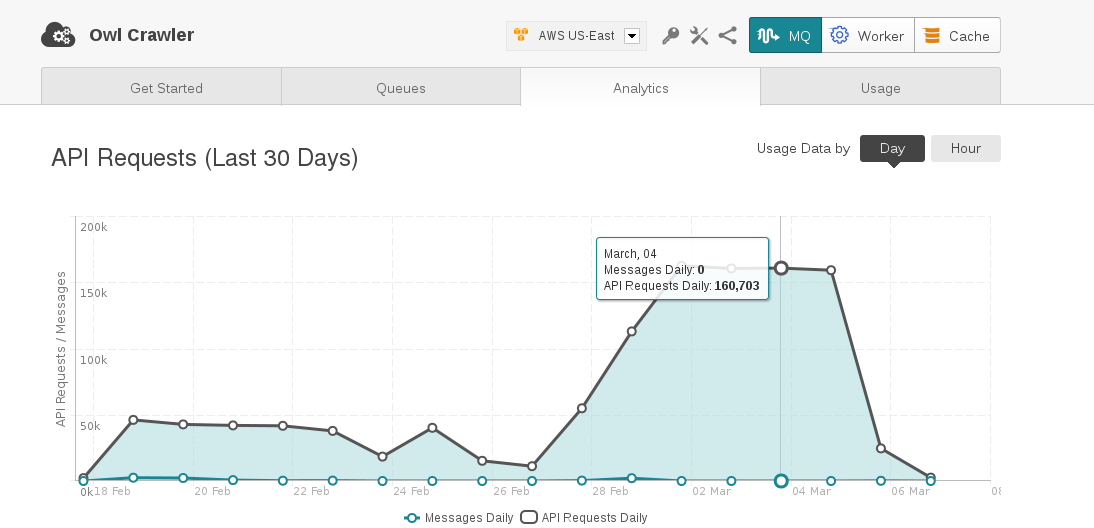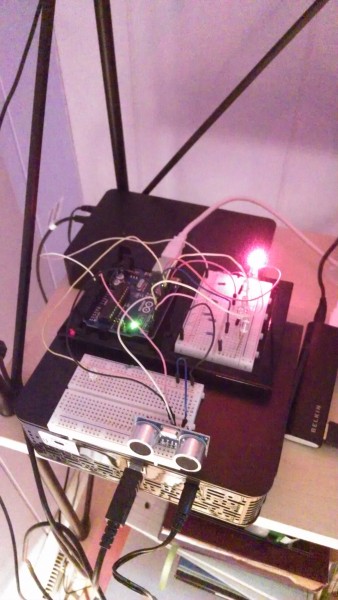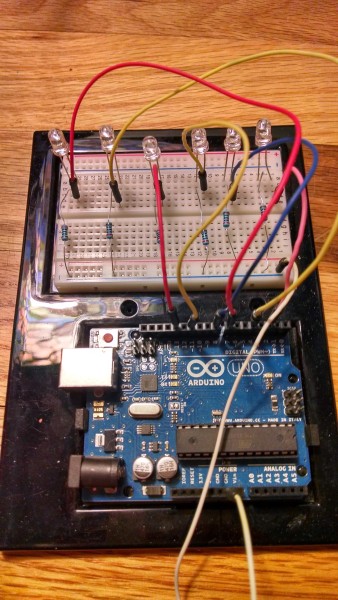Lift, Scala, Go and ...
I'm a Liftafarian. I'm a consultant and I use Lift, Scala during the day, and Go during nights and weekends.
-
Go - Making a program 70% faster, by avoiding common mistakes
February 29, 2016
Go - Making a program 70% faster, by avoiding common mistakes.
I often read articles where a developer would say they made this or that change to their code and a benchmark shows their function going from taking ~300ns to ~170ns and they were really happy about it. I think it's great that there are devs out there really squeezing every CPU cycle they can. But this isn't one of those articles.
-
Lift Comet for native Android apps
July 19, 2015
Lift Comet for native Android apps
A very powerful feature in Lift is its comet support, with very little code you can have an app that gives feedback to your users in real time. If you are new to the concept, these videos may help you.
But things get complicated when it's time to write a mobile app and you want to have the same real time feedback on a native app.
This question has been asked on the mailing list several times, and the answer always boils down to:
"You have to roll your own using rest async and use an http client on your mobile app."
-
Improving compile time in Go
March 8, 2015
Improving compile time in Go
The Go compiler is really fast, and I got so used to it that when compiling OwlCrawler was taking about 8 seconds I started to worry (granted I generate 3 executable files).
Tracking down the issue.
Some google-fu pointed me to adding the
-xparameter togo buildto see more details on what was going on.
-
Iron.io - Tech support done right
March 8, 2015
Iron.io - Tech support done right
Last week I woke up to find an email from Iron.io telling me that I was running low on my available IronMQ quota. Somehow I had made around 800,000 API requests in a week by running my OwlCrawler project.
How?
The reason was easy to spot, every time we got a resource offer from the Mesos master, the scheduler was checking two message queues for new tasks. One queue is to see if we needed to fetch html from a new page, and the other queue is to see if we needed to extract links and text from the html already fetched. This resulted in making around 160,000 API requests per day, just to see if there was any work to do.

-
OwlCrawler - Multiple executors using Mesos
March 1, 2015
OwlCrawler - Multiple Executors per Scheduler using Mesos
As I continue working on OwlCrawler, I have refactored the code a lot. After getting some great feedback on the Mesos mailing list, I went ahead and split the single executor into two separate
Executorsthat are triggered by the mainScheduler.On the scheduler, I now have these two
ExecutorInfoentries:
-
Web crawler using Mesos and Go
February 20, 2015
Distributed web crawler using Mesos and Go
OwlCrawler is a simple yet distributed web crawler I'm working onto learn Mesos. I'm using the mesos go binding to write the logic and use Iron MQ to trigger tasks that fetch pages. At this point I'm storing the url and html in etcd but I have plans to move that to CouchDB in the near future.
A bit of history.
-
Getting fancy with closures in Go
April 26, 2014
Getting fancy with closures in Go
While at the hackday at Gophercon I thought it would be a good idea to do some code refactoring of Cortex.
Over the past 24 hours I made many changes, but one that I specially liked was that I could pass a function as a parameter to another function. This is possible in Go because functions are first class (values? | elements?) And this made the code a lot cleaner.
Before.
Initially I only had this one function to fetch the list of flows:
-
Go Cortex - talking to Flowdock
April 23, 2014
Go Cortex - talking to Flowdock
While on one side Go-Cortex let's me control an Arduino using voice recognition, I also wanted to expand Cortex into helping me and my team at Brokc Alloy. we currently use flowdock for internal conversations and there were two things that I wasn't too happy about:
There were times when people would say the current temperature where they live, and that meant I had to go and convert them from Celsius to Fahrenheit.
The other case was that someone would say "Look at #44 and see if you can fix it", referring to a github issue. Again, I would had to go to the github page and add that issue number to a url, etc.
-
HTTP Streaming Using Go
April 4, 2014
HTTP Streaming Using Go
As I continue adding features to Cortex I needed to connect to the streaming api that Flowdock provides.
A quick Google search took me to this post which shows how to do that. It works, but while I was reading the code, it looked pretty low level for my taste. So I decided to try and use the http package.
Making the initial request
-
Voice command for Arduino and Raspberry Pi using SMS
March 29, 2014
Voice command for Arduino and Raspberry Pi using SMS and Google Now.
A couple of weeks ago I went ahead and bought the Wolfson sound card for the raspberry pi. I was hoping to integrate it into Cortex to improve the voice recognition setup I had.
This turned out not to work so well. The card has two built in microphones, but I had to be really close to the board to get a good quality recording. And even after applying some noise removal, the service I was using for voice recognition wasn't getting what I was saying (at least not all the time).
SMS to the rescue.
-
Go Cortex - using voice recognition and an ultrasonic sensor
March 9, 2014
Go Cortex
Using voice recognition and an ultrasonic sensor
Last week I released a small project I was working on. After I published it, I kept thinking of different ways to use it and how to make it better. I wasn't too happy with the idea that I had to type my message on the browser, so Cortex could process it. My goal is to have Cortex run on several raspberry pi computers all across my house, and somehow have them all waiting for commands, but I didn't want to have to manually interact with them.

Finding the light.
-
Go Cortex - using Wit.ai on a raspberry pi connected to an arduino and written in go
March 6, 2014
Go Cortex - using Wit.ai on a raspberry pi connected to an arduino and written in go
What is it?
Update
I wrote a follow up post where I added voice recording capabilities.
Cortex is a service written in the Go language that listens for regular sentences and tries to convert them into commands to execute. And in the near future, it will also give you relevant answers.

Internals
Cortex understands what you asked by using Wit.ai to process the incoming sentence. Wit returns an intent with some entities, and then Cortex executes a service based on that information.
This is a sample json response:
-
GoChat - Using Go Channels
January 5, 2014
GoChat - Using Go Channels
A couple of weeks ago I wrote about using Go with Twitter Flight to write web applications.
But I didn't put too much emphasis on the go code, it was mostly to highlight some patterns which I think can be applied to any web application.
This post is more about the go code.
Using Go channels.
-
Using Grunt and Bower with Lift
December 23, 2013
Using Grunt and Bower with Lift
I'm very grateful that I always get a chance to work with very smart people, and I get the chance to learn new tools, languages, techniques, etc. Here I'll talk about Grunt, which Tim Nelson introduced me to. And I'll talk a bit about Bower and how they can work together to help you in your Lift applications.
What is Grunt?
For those using Scala, think of grunt as a build tool for javascript and css files (I was going to say, think of it as sbt, but then those who ... dislike ... sbt may get some negative ideas about grunt.
-
Things I like about Go
December 21, 2013
Things I like about Go
I was going to start this post by pointing out all the bad things about Scala and how great Go is, but I decided against it, Go is such a great language, that you don't need to trash another language to point out Go's strengths. So here, I'm going to list how awesome a language Go is.
Things I love about Go.
You can see older posts on the archive